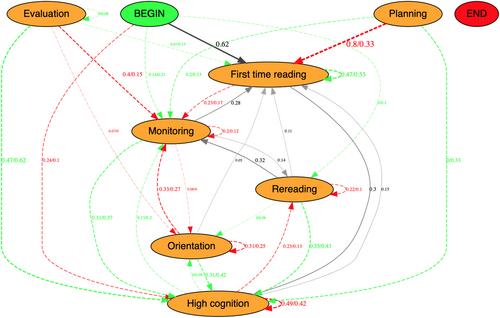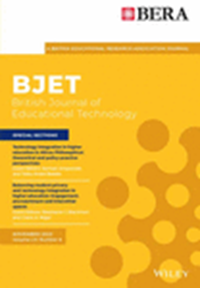How do students learn with real-time personalized scaffolds?
Abstract
Scaffolds that support self-regulated learning (SRL) have been found to improve learning outcomes. The effects of scaffolds can differ depending on how learners use them and how specific scaffolds might influence learning processes differently. Personalized scaffolds have been proposed to be more beneficial for learning due to their adaptivity to learning progress and individualized content to learning needs. The present study investigated finer-grained effects of how personalized scaffolds driven by a rule-based artificial intelligence system influenced SRL processes, especially how students learned with them. Using a pre-post experimental design, we investigated personalized scaffolds based on university students' real-time learning processes in a technologically enhanced learning environment. Students in the experimental group (n = 30) received personalized scaffolds, while the control group (n = 29) learned without scaffolds. All students completed a 45-minute learning task with trace data recorded. Findings indicated scaffold effects on students' subsequent learning behaviour. Additionally, only scaffold interaction correlated to essay performance and suggests that the increase in frequencies of SRL activities alone does not contribute directly to learning outcomes. As guidelines for real-time SRL support are lacking, this study provides valuable insights to enhance SRL support with adaptive learning technologies.
Practitioner notes
What is already known about this topic
- Self-regulated learning scaffolds, especially adaptive scaffolds, improve learning.
- Personalized scaffolds have effects on self-regulated learning activities.
- Past research focused on aggregated effects of scaffolds.
What this paper adds
- Investigates how students learn with personalized scaffolds in terms of frequencies of learning activities and scaffold interaction.
- Takes a closer look at which learning activities and when the effects of personalized scaffolds occur.
- Examines how finer-grained effects of personalized scaffolds correspond to learning outcomes.
Implications for practice and/or policy
- Personalized scaffold effects vary across learning, and future research should consider finer-grained investigations of SRL support in order to better understand their influence on learning.
- The number of personalized scaffolds provided should be reconsidered in the future as students only use some of the support provided, especially when task demands increase.
- Personalized scaffold interaction is linked to improvement in task performance, so future research should also focus on students' appropriate use of self-regulated learning support.


 求助内容:
求助内容: 应助结果提醒方式:
应助结果提醒方式:


